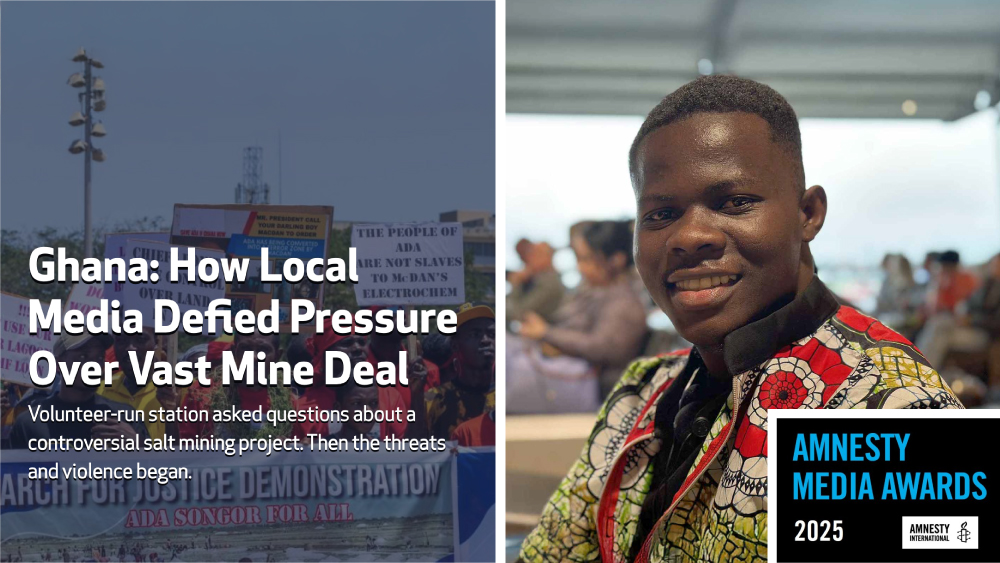IWPR Journalist Shortlisted for “Outstanding” Investigation
IWPR journalist shortlisted for a prestigious award for his reporting on a controversial mining deal.
Welcome to IWPR’s Frontline Update, your go-to source to hear from journalists and local voices at the front lines of conflict.
THE BIG PICTURE
IWPR highlights the work of Philip Teye Agbove, a 26-year-old Ghanian journalist whose investigation into how commercial salt production had impacted his community’s economic survival and cultural heritage has been shortlisted for an Amnesty International Media Award for “outstanding human rights journalism”.
Ghana: How Local Media Defied Pressure Over Vast Mine Deal documented the local fightback against corporate power and state security forces in a struggle for control over the Songor Lagoon, West Africa’s largest salt deposit.

VOICES FROM THE FRONTLINE
“I grew up in Ada, a coastal and farming town in southeastern Ghana,” Agbove told IWPR. “I have been inspired by under-reported issues in my community growing up, so I dreamed of becoming a journalist to be able to shine a light on such issues.”
Now 26, Agbove started his career as an intern at Radio Ada, the volunteer-run station which came under pressure for reporting on the mining deal.
Describing the shortlisted story as “one of my most impactful investigations,” Agbove said he was proud of having had documented “the violent confrontations, media repression, and economic displacement faced by the artisanal salt miners."
“My reporting has sparked national conversations and policy discussions on corporate accountability and indigenous rights”.
WHY IT MATTERS
Agbove’s story was supported as part of IWPR’s Voices for Change, Africa, which aims to increase accountability for serious human rights abuses across sub-Saharan Africa through accurate, in-depth reporting and an empowered civil society.
Another piece he produced for the project, Blood on the Ballot: Election Violence in Ghana, investigated how political polarisation, vigilantism and the security agencies’ excessive use of force risked harming the West Africa country’s peaceful transitions of power.
THE BOTTOM LINE
IWPR supports courageous journalism that amplifies local voices and joins with civil society to campaign for accountability.
“Working with IWPR has been an irreplaceable experience,” Agbove said. “It has not only amplified my investigative work on human rights and good governance but has also provided a global platform to highlight issues that might otherwise be overlooked."
“The mentorship and editorial guidance I received continue to strengthen my storytelling, making my reporting more impactful and accessible to broader audiences.”
Agbove was shortlisted for the Gaby Rado Award for New Journalists, a category which recognises those at the beginning of their careers. The winners of the Amnesty International Awards will be announced on June 4, 2025.
